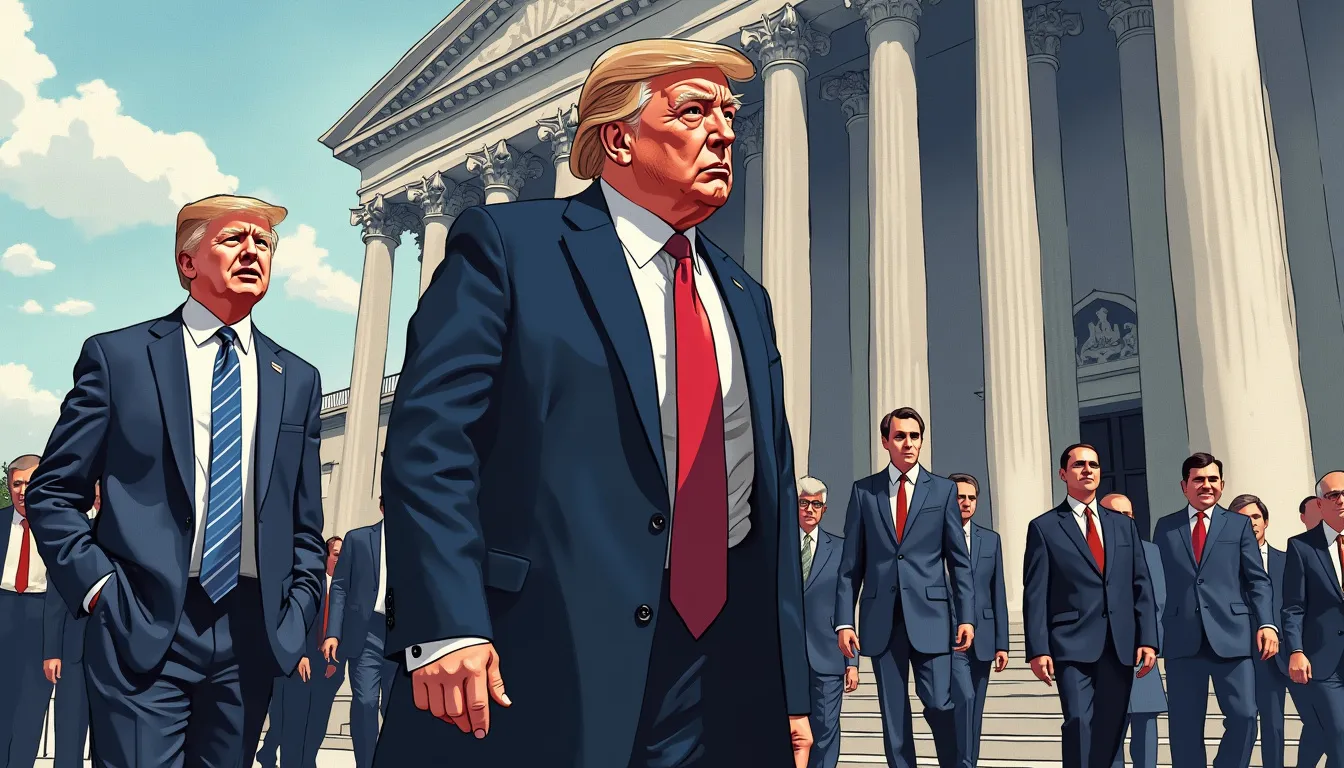
Parties Return to Court for Trump’s January 6 Election Interference Case
The legal proceedings surrounding former President Donald Trump’s alleged election interference related to the events of January 6, 2021, are advancing as parties reconvene in court. This case focuses on the significant allegations against Trump and associates concerning their roles in undermining the electoral process on the day of the Capitol riot.
Court Proceedings
Recent hearings have marked a critical phase in the legal process, with courts delving into the intricacies of the case. As the parties return to court, key arguments and legal strategies are being presented, highlighting the seriousness and complexity of the allegations involved.
Allegations of Election Interference
The January 6 incident holds profound importance in U.S. history as it coincided with Congress’s certification of the 2020 presidential election results. The legal case revolves around assertions that Trump and several allies might have engaged in activities aimed at disrupting this certification process, thus raising concerns over the integrity of U.S. democracy.
Legal Context
The landscape surrounding this case is extensive, with investigations by the Department of Justice (DOJ) and Congressional committees probing the actions taken by Trump and his associates. Potential charges could include obstruction of an official proceeding, conspiracy, and other federal offenses, which elevate the stakes of the legal proceedings.
Investigations and Charges
Central to the case are ongoing investigations which seek to uncover the motives and implications behind Trump’s actions on January 6. The outcome of these investigations could lead to significant legal repercussions for Trump, depending on the findings established by various governmental bodies.
Political Implications
The ramifications of this case extend beyond legal boundaries, influencing the political landscape as Trump contemplates future candidacies. Given Trump’s prominent role in American politics, the decisions made in court could reshape public perceptions and affect party dynamics as the nation approaches the next electoral cycle.
Legal Arguments and Defenses
As court sessions continue, both sides are expected to lay out their legal arguments. Defense strategies may encompass claims like executive privilege or protections under the First Amendment, while prosecutors aim to affirm the legality and intent behind Trump’s actions in the context of the law.
Public Interest
The case draws substantial public attention, reflecting widespread concerns regarding democracy and the role of leadership in maintaining it. The high-profile nature of the hearings promises ongoing media coverage and public scrutiny, as citizens seek clarity on potential violations of law by a former president.
Potential Consequences
Should the court find Trump guilty of any charges, the implications could be profound. Possible penalties range from fines to imprisonment, which would not only affect Trump personally but also have broader effects on American political practices and accountability in governance.
Timeline and Next Steps
As the legal proceedings unfold, stakeholders await updates on upcoming court dates and possible trial schedules. The timeline remains uncertain, but significant milestones will be closely monitored, as these will be crucial in determining the case’s trajectory.
Broader Context
This case forms part of a larger cluster of legal challenges facing Trump post-presidency. Investigations into his actions during and after his term continue to weave a complex narrative that could redefine his legacy and impact future political engagements.
As developments occur, the court’s proceedings will remain a focal point of national interest, illuminating the intricate relationship between law, politics, and public faith in democracy.
